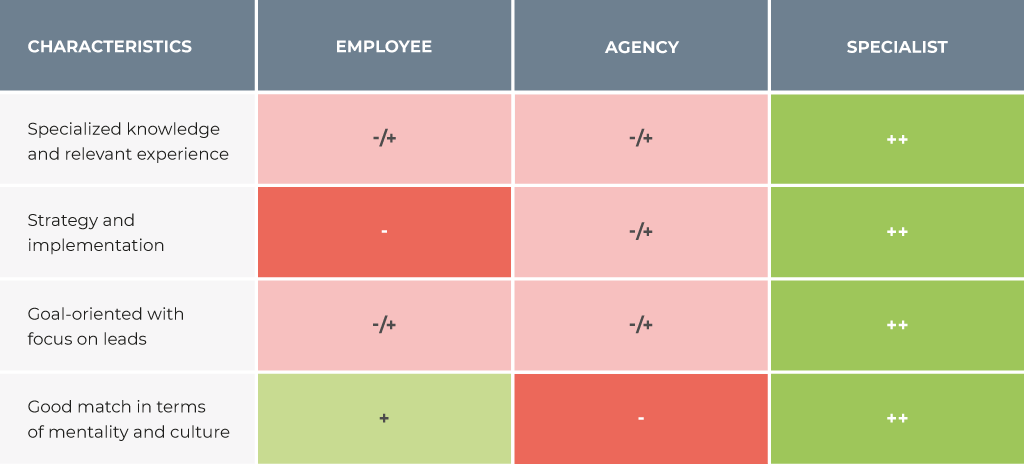As Managing Director, you have recently decided to invest in marketing to achieve even better commercial results. With this choice, you are immediately confronted with another decision: who will you have to work on this particular form of marketing? Who should you approach for this, and what do you need to pay attention to?
In this article, we present the options and the pros and cons of each.
There are three different ways you can go when it comes to marketing for industrial companies. You have to ask yourself:
- Do I hire an employee?
- Do I work with a marketing advertising agency?
- Do I go looking for a specialist? (technical marketing agency)
All three options have their pros and cons. The questions will help you get a clearer picture.
Marketing for Industrial Companies Option 1: The Employee
Cons
-
Given the current labor shortage, finding someone will be difficult.
-
How will you assess whether that person is competent if you find someone? Your company may lack marketing knowledge, so assessing their competence during application and employment will be difficult.
-
And then there is the question of whether they will understand your business. And will they find the work enjoyable, initially and in the long term?
-
The tech industry is wildly interesting (to those who understand it) but is not often seen as sexy. Marketers are more likely to choose a more appealing brand and product range.
-
Who will you bring on board? Will they be a thinker (strategy) or a doer (implementation)?
Finding someone with both competencies in the sufficient measure could be next to impossible. -
Marketing for industrial companies is rarely a full-time job, but part-time is also not ideal given the results you want to achieve.
-
An employee will be temporarily or permanently on your payroll with all the associated obligations. Of course, there is also the possibility they will resign.
Assessing competence with limited knowledge
can be difficult. Who do you hire?
Pros
-
You have full insight into your employees' time when they work at your location.
-
The lines of communication are short, and you can have them change direction quickly.
-
An employee becomes integrated with the team. They can settle in and understand your needs, and over time they will become increasingly invested in the company.





